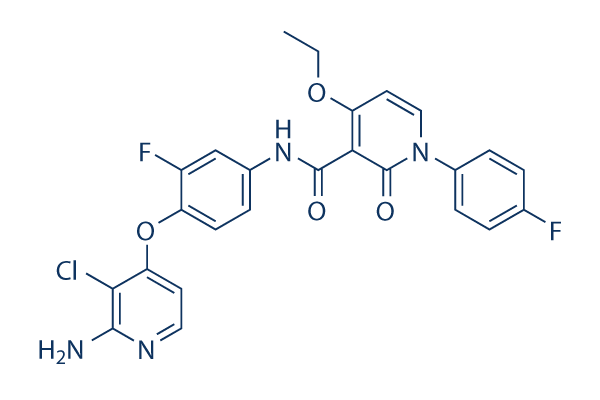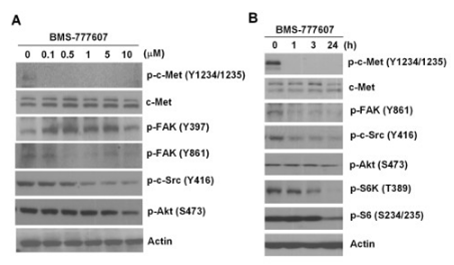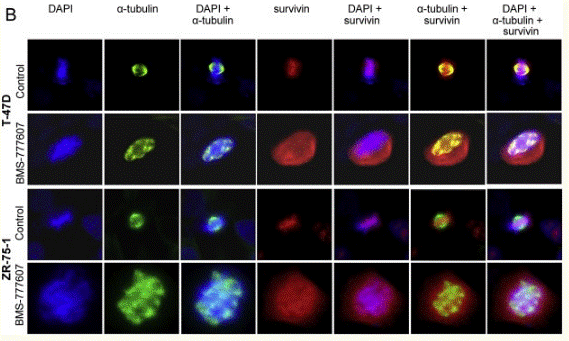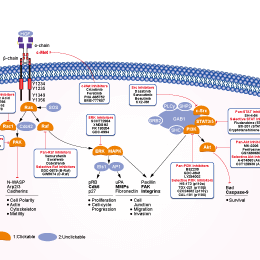
- Bioactive Compounds
- By Signaling Pathways
- PI3K/Akt/mTOR
- Epigenetics
- Methylation
- Immunology & Inflammation
- Protein Tyrosine Kinase
- Angiogenesis
- Apoptosis
- Autophagy
- ER stress & UPR
- JAK/STAT
- MAPK
- Cytoskeletal Signaling
- Cell Cycle
- TGF-beta/Smad
- DNA Damage/DNA Repair
- Compound Libraries
- Popular Compound Libraries
- Customize Library
- Clinical and FDA-approved Related
- Bioactive Compound Libraries
- Inhibitor Related
- Natural Product Related
- Metabolism Related
- Cell Death Related
- By Signaling Pathway
- By Disease
- Anti-infection and Antiviral Related
- Neuronal and Immunology Related
- Fragment and Covalent Related
- FDA-approved Drug Library
- FDA-approved & Passed Phase I Drug Library
- Preclinical/Clinical Compound Library
- Bioactive Compound Library-I
- Bioactive Compound Library-Ⅱ
- Kinase Inhibitor Library
- Express-Pick Library
- Natural Product Library
- Human Endogenous Metabolite Compound Library
- Alkaloid Compound LibraryNew
- Angiogenesis Related compound Library
- Anti-Aging Compound Library
- Anti-alzheimer Disease Compound Library
- Antibiotics compound Library
- Anti-cancer Compound Library
- Anti-cancer Compound Library-Ⅱ
- Anti-cancer Metabolism Compound Library
- Anti-Cardiovascular Disease Compound Library
- Anti-diabetic Compound Library
- Anti-infection Compound Library
- Antioxidant Compound Library
- Anti-parasitic Compound Library
- Antiviral Compound Library
- Apoptosis Compound Library
- Autophagy Compound Library
- Calcium Channel Blocker LibraryNew
- Cambridge Cancer Compound Library
- Carbohydrate Metabolism Compound LibraryNew
- Cell Cycle compound library
- CNS-Penetrant Compound Library
- Covalent Inhibitor Library
- Cytokine Inhibitor LibraryNew
- Cytoskeletal Signaling Pathway Compound Library
- DNA Damage/DNA Repair compound Library
- Drug-like Compound Library
- Endoplasmic Reticulum Stress Compound Library
- Epigenetics Compound Library
- Exosome Secretion Related Compound LibraryNew
- FDA-approved Anticancer Drug LibraryNew
- Ferroptosis Compound Library
- Flavonoid Compound Library
- Fragment Library
- Glutamine Metabolism Compound Library
- Glycolysis Compound Library
- GPCR Compound Library
- Gut Microbial Metabolite Library
- HIF-1 Signaling Pathway Compound Library
- Highly Selective Inhibitor Library
- Histone modification compound library
- HTS Library for Drug Discovery
- Human Hormone Related Compound LibraryNew
- Human Transcription Factor Compound LibraryNew
- Immunology/Inflammation Compound Library
- Inhibitor Library
- Ion Channel Ligand Library
- JAK/STAT compound library
- Lipid Metabolism Compound LibraryNew
- Macrocyclic Compound Library
- MAPK Inhibitor Library
- Medicine Food Homology Compound Library
- Metabolism Compound Library
- Methylation Compound Library
- Mouse Metabolite Compound LibraryNew
- Natural Organic Compound Library
- Neuronal Signaling Compound Library
- NF-κB Signaling Compound Library
- Nucleoside Analogue Library
- Obesity Compound Library
- Oxidative Stress Compound LibraryNew
- Plant Extract Library
- Phenotypic Screening Library
- PI3K/Akt Inhibitor Library
- Protease Inhibitor Library
- Protein-protein Interaction Inhibitor Library
- Pyroptosis Compound Library
- Small Molecule Immuno-Oncology Compound Library
- Mitochondria-Targeted Compound LibraryNew
- Stem Cell Differentiation Compound LibraryNew
- Stem Cell Signaling Compound Library
- Natural Phenol Compound LibraryNew
- Natural Terpenoid Compound LibraryNew
- TGF-beta/Smad compound library
- Traditional Chinese Medicine Library
- Tyrosine Kinase Inhibitor Library
- Ubiquitination Compound Library
-
Cherry Picking
You can personalize your library with chemicals from within Selleck's inventory. Build the right library for your research endeavors by choosing from compounds in all of our available libraries.
Please contact us at info@selleckchem.com to customize your library.
You could select:
- Antibodies
- Bioreagents
- qPCR
- 2x SYBR Green qPCR Master Mix
- 2x SYBR Green qPCR Master Mix(Low ROX)
- 2x SYBR Green qPCR Master Mix(High ROX)
- Protein Assay
- Protein A/G Magnetic Beads for IP
- Anti-Flag magnetic beads
- Anti-Flag Affinity Gel
- Anti-Myc magnetic beads
- Anti-HA magnetic beads
- Magnetic Separator
- Poly DYKDDDDK Tag Peptide lyophilized powder
- Protease Inhibitor Cocktail
- Protease Inhibitor Cocktail (EDTA-Free, 100X in DMSO)
- Phosphatase Inhibitor Cocktail (2 Tubes, 100X)
- Cell Biology
- Cell Counting Kit-8 (CCK-8)
- Animal Experiment
- Mouse Direct PCR Kit (For Genotyping)
- New Products
- Contact Us
BMS-777607
Synonyms: BMS 817378
BMS-777607 (BMS 817378) is a Met-related inhibitor for c-Met, Axl, Ron and Tyro3 with IC50 of 3.9 nM, 1.1 nM, 1.8 nM and 4.3 nM in cell-free assays, 40-fold more selective for Met-related targets versus Lck, VEGFR-2, and TrkA/B, and more than 500-fold greater selectivity versus all other receptor and non receptor kinases.

BMS-777607 Chemical Structure
CAS No. 1025720-94-8
Purity & Quality Control
Batch:
Purity:
99.64%
99.64
BMS-777607 Related Products
| Related Products | SGX-523 Foretinib PHA-665752 SU11274 JNJ-38877605 Tivantinib PF-04217903 Tepotinib Savolitinib (AZD6094) MGCD-265 analog Golvatinib (E7050) Merestinib (LY2801653) MK-2461 NPS-1034 AMG 337 Sodium L-ascorbyl-2-phosphate NVP-BVU972 BMS-794833 S49076 | Click to Expand |
|---|---|---|
| Related Compound Libraries | Kinase Inhibitor Library Tyrosine Kinase Inhibitor Library PI3K/Akt Inhibitor Library Cell Cycle compound library Angiogenesis Related compound Library | Click to Expand |
Signaling Pathway
Cell Data
| Cell Lines | Assay Type | Concentration | Incubation Time | Formulation | Activity Description | PMID |
|---|---|---|---|---|---|---|
| PC-3 | Function assay | 0.1 μM | DMSO | exhibits inhibitory effect on HGF-induced cell scattering | 20515943 | |
| DU145 | Function assay | 0.1 μM | DMSO | exhibits inhibitory effect on HGF-induced cell scattering | 20515943 | |
| PC-3 | Function assay | 0.01 μM | DMSO | suppresses HGF-induced cell migration | 20515943 | |
| DU145 | Function assay | 0.01 μM | DMSO | suppresses HGF-induced cell migration | 20515943 | |
| PC-3 | Function assay | 0.1 μM | DMSO | impairs HGF-mediated cell invasion | 20515943 | |
| DU145 | Function assay | 0.1 μM | DMSO | impairs HGF-mediated cell invasion | 20515943 | |
| PC-3 | Growth inhibitory assay | ~10 μM | DMSO | reduces cell proliferation | 20515943 | |
| KHT | Kinase assay | DMSO | blocks the c-Met signaling pathway with IC50 of 10 nM | 22286523 | ||
| KHT | Function assay | ~1 μM | DMSO | prevents spontaneous KHT cell scattering with IC50 of 0.1-0.5 μM | 22286523 | |
| KHT | Function assay | ~0.5 μM | DMSO | inhibits cell migration | 22286523 | |
| KHT | Function assay | ~0.5 μM | DMSO | inhibits cell invasion | 22286523 | |
| KHT | Growth inhibitory assay | ~10 μM | DMSO | inhibits KHT cell proliferation | 22286523 | |
| T-47D | Growth inhibitory assay | ~5 μM | DMSO | inhibits cell proliferation | 23468529 | |
| ZR-75-1 | Growth inhibitory assay | ~5 μM | DMSO | inhibits cell proliferation | 23468529 | |
| T-47D | Function assay | 10 μM | DMSO | Induces polyploidy by 86 % | 23468529 | |
| ZR-75-1 | Function assay | 10 μM | DMSO | Induces polyploidy by 88% | 23468529 | |
| T-47D | Function assay | 10 μM | DMSO | inhibits AURK-B function and induces its protein degradation | 23468529 | |
| CHRF | Function assay | 10 μM | DMSO | inhibits cell division | 25304900 | |
| HPDE | Function assay | 10 μM | DMSO | blocks constitutive activation and decreased AKT signaling | 26477314 | |
| U118MG | Kinase assay | ~3 μM | DMSO | blocks AXL phosphorylation | 26848524 | |
| SF126 | Kinase assay | ~3 μM | DMSO | blocks AXL phosphorylation | 26848524 | |
| U118MG | Cytoxicity assay | 12.5 μM | DMSO | decreases glioma cell viability | 26848524 | |
| SF126 | Cytoxicity assay | 12.5 μM | DMSO | decreases glioma cell viability | 26848524 | |
| U118MG | Apoptosis assay | 12.5 μM | DMSO | induces glioma cell apoptosis | 26848524 | |
| SF126 | Apoptosis assay | 12.5 μM | DMSO | induces glioma cell apoptosis | 26848524 | |
| U118MG | Function assay | 12.5 μM | DMSO | blocks glioma cell migration and invasive growth pattern | 26848524 | |
| SF126 | Function assay | 12.5 μM | DMSO | blocks glioma cell migration and invasive growth pattern | 26848524 | |
| GTL16 | Function assay | 30 mins | Inhibition of Met phosphorylation in human GTL16 cells after 30 mins, IC50 = 0.02 μM. | 19260711 | ||
| GTL16 | Antiproliferative assay | 72 hrs | Antiproliferative activity against Met-dependent human GTL16 cells after 72 hrs by MTS assay, IC50 = 0.1 μM. | 19260711 | ||
| NCI-H1993 | Antiproliferative assay | 72 hrs | Antiproliferative activity against Met-dependent human NCI-H1993 cells after 72 hrs by MTS assay, IC50 = 0.15 μM. | 19260711 | ||
| U87 | Antiproliferative assay | 72 hrs | Antiproliferative activity against Met-driven human U87 cells after 72 hrs by MTS assay, IC50 = 0.16 μM. | 19260711 | ||
| BAF3 | Cytotoxicity assay | 72 hrs | Cytotoxicity against mouse BAF3 cells expressing TPR-Met assessed as growth inhibition after 72 hrs, IC50 = 0.1884 μM. | 24792774 | ||
| DU145 | Antiinvasive assay | 1 hr | Antiinvasive activity in human DU145 cells assessed as inhibition of HGF-induced cell motility preincubated for 1 hr before HGF treatment measured after 24 hrs by cell scattering assay, IC50 = 0.2 μM. | 24900830 | ||
| MKN45 | Cytotoxicity assay | 72 hrs | Cytotoxicity against human MKN45 cells assessed as growth inhibition after 72 hrs, IC50 = 0.2858 μM. | 24792774 | ||
| NCI-H1993 | Cytotoxicity assay | 48 hrs | Cytotoxicity against human NCI-H1993 cells after 48 hrs by MTT assay, IC50 = 1.108 μM. | 24900830 | ||
| GTL16 | Function assay | 6.25 mg/kg | Cmax in human GTL16 cells xenografted athymic mouse at 6.25 mg/kg, po, Cmax = 4.5 μM. | 19260711 | ||
| GTL16 | Function assay | 50 mg/kg | Cmax in human GTL16 cells xenografted athymic mouse at 50 mg/kg, po, Cmax = 43.7 μM. | 19260711 | ||
| SJ-GBM2 | qHTS assay | qHTS of pediatric cancer cell lines to identify multiple opportunities for drug repurposing: Primary screen for SJ-GBM2 cells | 29435139 | |||
| A673 | qHTS assay | qHTS of pediatric cancer cell lines to identify multiple opportunities for drug repurposing: Primary screen for A673 cells | 29435139 | |||
| SK-N-MC | qHTS assay | qHTS of pediatric cancer cell lines to identify multiple opportunities for drug repurposing: Primary screen for SK-N-MC cells | 29435139 | |||
| Saos-2 | qHTS assay | qHTS of pediatric cancer cell lines to identify multiple opportunities for drug repurposing: Primary screen for Saos-2 cells | 29435139 | |||
| LAN-5 | qHTS assay | qHTS of pediatric cancer cell lines to identify multiple opportunities for drug repurposing: Primary screen for LAN-5 cells | 29435139 | |||
| OHS-50 | qHTS assay | qHTS of pediatric cancer cell lines to identify multiple opportunities for drug repurposing: Primary screen for OHS-50 cells | 29435139 | |||
| A673 | qHTS assay | qHTS of pediatric cancer cell lines to identify multiple opportunities for drug repurposing: Confirmatory screen for A673 cells) | 29435139 | |||
| SK-N-MC | qHTS assay | qHTS of pediatric cancer cell lines to identify multiple opportunities for drug repurposing: Confirmatory screen for SK-N-MC cells | 29435139 | |||
| SJ-GBM2 | qHTS assay | qHTS of pediatric cancer cell lines to identify multiple opportunities for drug repurposing: Confirmatory screen for SJ-GBM2 cells | 29435139 | |||
| TC32 | qHTS assay | qHTS of pediatric cancer cell lines to identify multiple opportunities for drug repurposing: Confirmatory screen for TC32 cells | 29435139 | |||
| MG 63 (6-TG R) | qHTS assay | qHTS of pediatric cancer cell lines to identify multiple opportunities for drug repurposing: Confirmatory screen for MG 63 (6-TG R) cells | 29435139 | |||
| MGHU3 | Antiproliferative assay | 72 hrs | Antiproliferative activity against human MGHU3 cells after 72 hrs by CellTiter-Glo assay | 30309671 | ||
| RT112 | Antiproliferative assay | 72 hrs | Antiproliferative activity against human RT112 cells after 72 hrs by CellTiter-Glo assay | 30309671 | ||
| Click to View More Cell Line Experimental Data | ||||||
Biological Activity
| Description | BMS-777607 (BMS 817378) is a Met-related inhibitor for c-Met, Axl, Ron and Tyro3 with IC50 of 3.9 nM, 1.1 nM, 1.8 nM and 4.3 nM in cell-free assays, 40-fold more selective for Met-related targets versus Lck, VEGFR-2, and TrkA/B, and more than 500-fold greater selectivity versus all other receptor and non receptor kinases. | |||||||||||
|---|---|---|---|---|---|---|---|---|---|---|---|---|
| Features | A potent inhibitor of the Met family, and >40-fold selectivity vs. Lck, VEGFR2, and TrkA/B and >500-fold selective vs. other receptor and non-receptor kinases. | |||||||||||
| Targets |
|
| In vitro | ||||
| In vitro | BMS-777607 is a selective ATP-competitive Met kinase inhibitor which potently blocks the autophosphorylation of c-Met with IC50 of 20 nM in GTL-16 cell lysates, and demonstrates selective inhibition of proliferation in Met-driven tumor cell lines, such as GTL-16 cell line, H1993 and U87. [1] BMS-777607 inhibits hepatocyte growth factor (HGF)-triggered c-Met autophosphorylation with IC50 of <1 nM in PC-3 and DU145 prostate cancer cells. BMS 777607 has little effect on tumor cell growth, but exhibits inhibitory effect on HGF-induced cell scattering in PC-3 and DU145 cells, with almost complete inhibition at 0.5 μM. BMS 777607 also suppresses stimulated cell migration and invasion in a dose-dependent fashion (IC50 < 0.1 μM) in both cell lines. [2] Application of BMS 777607 (~10 μM) to the highly metastatic murine KHT cells for 2 hours potently eliminates basal levels of autophosphorylated c-Met with IC50 of 10 nM without affecting the total c-Met, leading to dose-dependent inhibition of phosphorylation of downstream signaling molecules including ERK, Akt, p70S6K and S6. Treatment with BMS-777607 (~1 μM) for 24 hours potently inhibits the KHT cell scatter, motility and invasion at doses in the nanomolar range which consists with MET gene knockdown, and modestly affects cell proliferation and colony formation. [3] |
|||
|---|---|---|---|---|
| Kinase Assay | Met Kinase Assay | |||
| The kinase reaction consists of baculovirus expressed GST-Met, 3 μg of poly(Glu/Tyr), 0.12 μCi 33P γ-ATP, 1 μM ATP in 30 μL of kinase buffer (20 mM Tris-Cl, 5 mM MnCl2, 0.1 mg/mL BSA, 0.5 mM DTT). Reactions are incubated for 1 hour at 30 °C and stopped by the addition of cold trichloroacetic acid (TCA) to a final concentration of 8%. TCA precipitates are collected onto GF/C unifilter plates using a Filtermate universal harvester, and the filters are quantitated using a TopCount 96-well liquid scintillation counter. Dose response curves are generated to determine the concentration required to inhibit 50% of substrate phosphorylation (IC50). BMS 777607 is dissolved at 10 mM in DMSO and evaluated at 10 concentrations, in duplicate. | ||||
| Cell Research | Cell lines | Rodent fibrosarcoma KHT cells | ||
| Concentrations | Dissolved in DMSO as a stock solution (10 mM), final concentration ~10 μM. | |||
| Incubation Time | 2, 24 and 96 hours | |||
| Method | KHT cells are exposed to serial dilution of BMS 777607 for 96 hours, then the MTT assay and trypan blue exclusion are used for the determination of cell proliferation and cell death, respectively. KHT cell colonies are incubated with BMS 777607 for 24 hours and then stained with crystal violet (0.1%) and photographed for the assessment of cell scattering. 2 mm scratch on the confluent KHT cell monolayer is made using a sterilized 1 ml pipette tip followed by treated with BMS-777607 for 24 hours, then the number of cells that have migrated into the denuded area is counted on 4 random fields for the evaluation of cell migration. For the examination of cell invasion, the commercial transwell inserts (8 μm pore membrane) pre-loaded with Matrigel are incubated with serum-free medium in the presence or absence of BMS 777607 at 37 °C for 2 hours to allow rehydration of Matrigel. Then cells suspended in serum-free medium are loaded onto the top chamber (5 × 103/insert) and complete medium (containing 10% FBS) is used in the lower chamber as a chemoattractant. After incubation for 24 hours, the Matrigel is removed and the inserts are stained with crystal violet. Invaded cells on the underside of the filter are photographed and counted. |
|||
| Experimental Result Images | Methods | Biomarkers | Images | PMID |
| Western blot | p-c-Met / c-Met / p-FAK / p-c-Src / p-Akt / p-S6K / p-S6 p53 / p21 / Survivin / p-Rb / Rb |

|
22639908 | |
| Immunofluorescence | α-tubulin / survivin |

|
24444656 | |
| In Vivo | ||
| In vivo | Oral administration of BMS 777607 (6.25-50 mg/kg) significantly reduces tumor volumes of the GTL-16 human tumor xenografts in athymic mice with no observed toxicity. [1] Administration of BMS 777607 (25 mg/kg/day) decreases the number of KHT lung tumor nodules (28.3%), improves the morphological hemorrhage, and significantly impairs the metastatic phenotype in the 6-8 week-old female C3H/HeJ mice injected with rodent fibrosarcoma KHT cells without apparent systemic toxicity compared to the control treatment. A low dose of BMS 777607 (10 mg/kg) also offers a mild but not significant inhibition of lung nodule formation compared to the vehicle control. [3] |
|
|---|---|---|
| Animal Research | Animal Models | Rodent fibrosarcoma KHT cells are established in female C3H/HeJ mice. |
| Dosages | 10-25 mg/kg. | |
| Administration | Oral gavage once daily. | |
| NCT Number | Recruitment | Conditions | Sponsor/Collaborators | Start Date | Phases |
|---|---|---|---|---|---|
| NCT01721148 | Completed | Malignant Solid Tumour |
ASLAN Pharmaceuticals |
October 2012 | Phase 1 |
| NCT00605618 | Completed | Advanced Solid Tumors |
Bristol-Myers Squibb |
March 2008 | Phase 1|Phase 2 |
Chemical Information & Solubility
| Molecular Weight | 512.89 | Formula | C25H19ClF2N4O4 |
| CAS No. | 1025720-94-8 | SDF | Download BMS-777607 SDF |
| Smiles | CCOC1=C(C(=O)N(C=C1)C2=CC=C(C=C2)F)C(=O)NC3=CC(=C(C=C3)OC4=C(C(=NC=C4)N)Cl)F | ||
| Storage (From the date of receipt) | |||
|
In vitro |
DMSO : 100 mg/mL ( (194.97 mM) Moisture-absorbing DMSO reduces solubility. Please use fresh DMSO.) Water : Insoluble Ethanol : Insoluble |
Molecular Weight Calculator |
|
In vivo Add solvents to the product individually and in order. |
In vivo Formulation Calculator |
||||
Preparing Stock Solutions
Molarity Calculator
In vivo Formulation Calculator (Clear solution)
Step 1: Enter information below (Recommended: An additional animal making an allowance for loss during the experiment)
mg/kg
g
μL
Step 2: Enter the in vivo formulation (This is only the calculator, not formulation. Please contact us first if there is no in vivo formulation at the solubility Section.)
% DMSO
%
% Tween 80
% ddH2O
%DMSO
%
Calculation results:
Working concentration: mg/ml;
Method for preparing DMSO master liquid: mg drug pre-dissolved in μL DMSO ( Master liquid concentration mg/mL, Please contact us first if the concentration exceeds the DMSO solubility of the batch of drug. )
Method for preparing in vivo formulation: Take μL DMSO master liquid, next addμL PEG300, mix and clarify, next addμL Tween 80, mix and clarify, next add μL ddH2O, mix and clarify.
Method for preparing in vivo formulation: Take μL DMSO master liquid, next add μL Corn oil, mix and clarify.
Note: 1. Please make sure the liquid is clear before adding the next solvent.
2. Be sure to add the solvent(s) in order. You must ensure that the solution obtained, in the previous addition, is a clear solution before proceeding to add the next solvent. Physical methods such
as vortex, ultrasound or hot water bath can be used to aid dissolving.
Tech Support
Answers to questions you may have can be found in the inhibitor handling instructions. Topics include how to prepare stock solutions, how to store inhibitors, and issues that need special attention for cell-based assays and animal experiments.
Tel: +1-832-582-8158 Ext:3
If you have any other enquiries, please leave a message.
* Indicates a Required Field
Frequently Asked Questions
Question 1:
What formulation can we use to dissolve S1561 for mice in vivo study?
Answer:
S1561 BMS-777607 in 1% DMSO+30% polyethylene glycol+1% Tween 80 at 30 mg/ml is a suspension. It is fine for oral gavage. If you are going to use it for injection, please try the following vehicle: 4% DMSO+30% PEG 300+ddH2O. BMS-777607 can be dissolved in it at 5 mg/ml as a clear solution.
Tags: buy BMS-777607 | BMS-777607 supplier | purchase BMS-777607 | BMS-777607 cost | BMS-777607 manufacturer | order BMS-777607 | BMS-777607 distributor







































